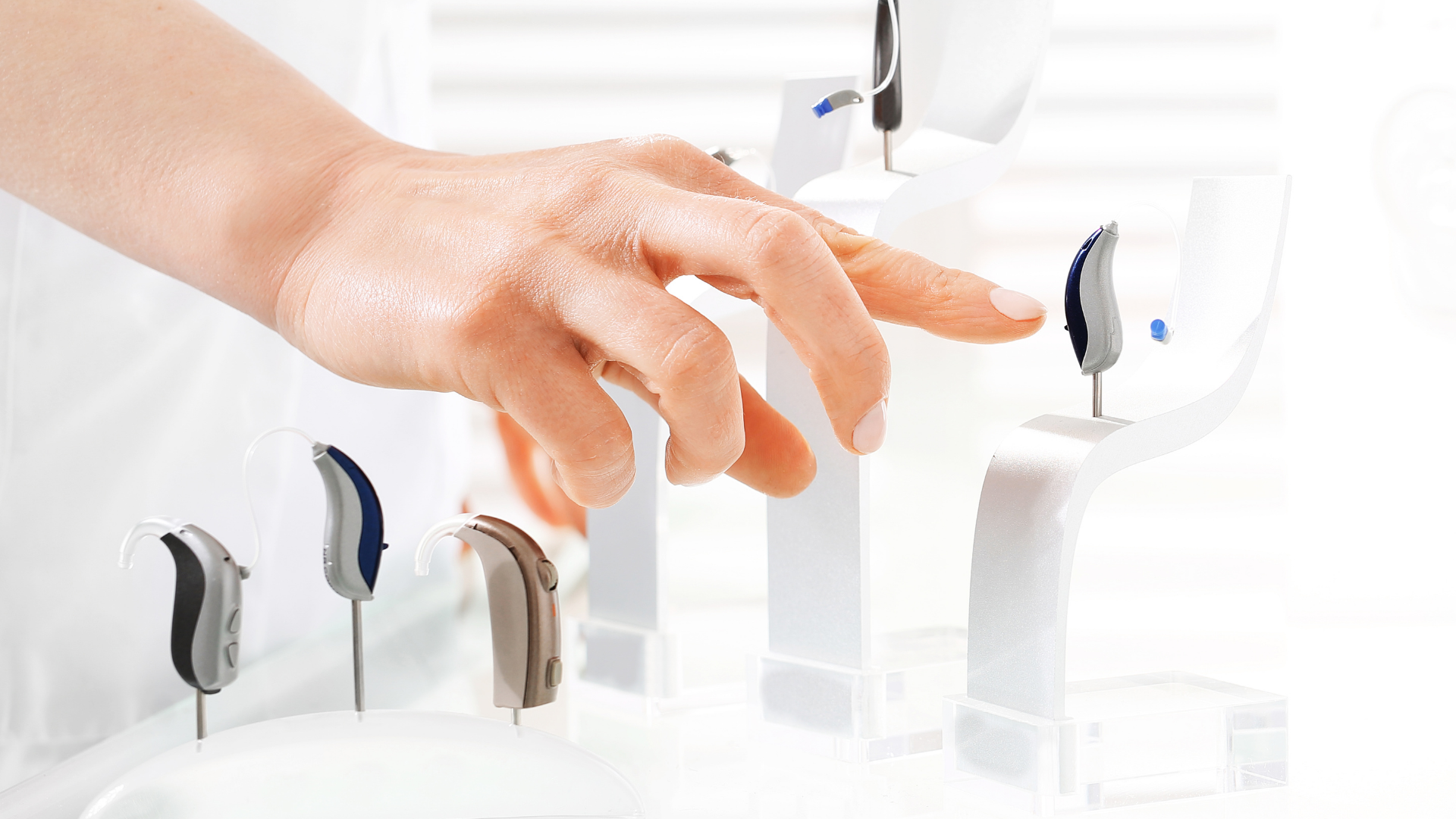Hearing loss is a condition that typically develops with age, although it can also result from injury or physical blockages within the ear, such as earwax and fluid build-up. Despite affecting a significant number of people in the UK, it is often overlooked until the effects become severe. By this time, hearing aids tend to be the most popular solution, and for good reason. But at what point should you consider using hearing aids? There are many deciding factors to consider, such as the severity of your hearing loss and your lifestyle and personal preferences. This blog will help you in the decision-making process. Keep reading to find out more.

What are the different types of hearing loss?
Firstly, understanding what hearing loss is and the different types can influence your need for hearing aids. There are two main types of hearing loss, and a third type which is a mix of them both.
Sensorineural Hearing Loss
This type of hearing loss results from damage to the hair cells inside the inner ear. These hair cells are vital in our hearing function, as they convert sound vibrations into energy for our brain to receive. Without these hairs, sound cannot be picked up, and the result is long-term hearing loss.
Conductive Hearing Loss
On the contrary, conductive hearing loss results when sound is prevented from reaching the inner ear. This can be due to reasons such as a blockage (earwax or foreign object stuck in the ear), perforated eardrum, injury, disease, changes to the structures within the ear (disarticulation of the three ossicles), or finally a stiffening of the ossicular chain from an additional bony growth (otosclerosis).
Mixed Hearing Loss
Both sensorineural and conductive hearing loss can become combined to produce mixed hearing loss. This level of hearing loss can be challenging, especially when fitting hearing aids as the power requirements tend to be higher, meaning there is a risk of feedback occurring from the hearing aids. Thankfully, more modern hearing aid devices have advanced feedback detection and cancellation circuitry so that these problems are reduced whilst ensuring the volume is kept loud enough for the user to benefit from.
If you are worried you may be suffering from hearing loss, use our Free Online Hearing Screener to test your hearing.

What are the causes of hearing loss?
One of the main causes of hearing loss is ageing. Our bodies’ general wear and tear means over time our hair cells in the ear begin to deteriorate and don’t regenerate as they once did. Fewer hair cells mean our hearing becomes more impaired.
Ageing isn’t the only factor that can reduce our hearing. Prolonged exposure to loud noises without ear protection can also cause damage to those hair cells. Too much damage means the hair cells die, resulting in permanent hearing loss.
As mentioned above, conductive hearing loss is more commonly caused by physical blockages in our ears or as a result of an infection or abnormalities. Luckily for conductive hearing loss, treatment can usually involve earwax extraction or a course of medication to rid the body of your infection.
However, the use of earbuds is not a solution to earwax build-up, as they are more likely to push the wax further into the ear canal, causing impact, or worse yet, the earbuds can break apart and become lodged inside the ear.
What are the different levels of hearing loss?
Now you understand the different types of hearing loss and their causes, we can begin to understand the different levels of hearing loss and how they are diagnosed.
In the UK, hearing loss tends to be diagnosed into 4 different categories:
Mild Hearing Loss
Mild hearing loss is defined as those who are unable or struggle with hearing soft or moderately loud sounds. The range for this type of hearing falls between 25-40 dB.
Moderate Hearing Loss
Moderate hearing loss is when individuals struggle to hear and understand conversations, particularly in noisy places. Those with moderate hearing loss struggle with communication, which has an impact on daily life. The range for moderate hearing loss is 41-70 dB.
Severe Hearing Loss
People with severe hearing loss struggle to hear most sounds and have great difficulty understanding speech. These people need to rely heavily on lip reading during most conversations. The range for severe hearing loss is 71-95 dB.
Profound Hearing Loss
Finally, profound hearing loss means there is a complete inability to hear most sounds, even loud sounds. Those with profound hearing loss may need to rely on sign language or other forms of communication to interact with others. Profound hearing loss is anywhere above 95 dB.
For context into what ‘normal’ hearing is, the average person with full hearing ability will typically fall in the range of 0-20 dB. As our hearing worsens, our ability to hear softer, quieter sounds becomes much more difficult.

What level of hearing loss requires a hearing aid?
The use of a hearing aid can be beneficial to many with hearing loss, however, this decision can depend on various factors, not just your degree of hearing.
During a hearing aid assessment, factors such as your communication struggles, daily life, and personal preferences can influence your hearing loss solution.
If you find that you are struggling with communication, a hearing aid could be most beneficial to you. Going about our daily lives without the ability to communicate can lead to social isolation and have a negative impact on our relationships with others. Without social engagement or cognitive stimulation, people with hearing loss are at a greater risk of cognitive decline. As the effects of hearing loss and dementia can be linked, those struggling with communication must be tested for the use of hearing aids to help reduce this risk.
It is important to consider each individual’s quality of life when suffering from hearing loss. The inability to hear can take away life’s pleasures, such as music and social interaction. This can take a big toll on your emotional wellbeing. When hearing loss begins to affect your quality of life and your mental health, a hearing aid device can bring back life’s pleasures and improve your emotions so you begin to enjoy life again.
Finally, deciding to use a hearing aid is ultimately each individual’s personal choice. Recognising the signs of hearing loss early and addressing the issue head-on might influence your decision to use a hearing aid. It is essential to consider each person’s preferences when using hearing aids as a solution and address concerns related to stigma around them.

At Hearing Therapy, we supply a range of hearing aid brands, suitable for individuals suffering from mild to profound hearing loss. Below is a list of our hearing aid partners:
At Hearing Therapy, our team is available to provide expert advice and treatment for hearing loss at all levels. With our professional help, you can receive the right solution and choose the best hearing aids to suit your needs.
If you or someone you know is struggling with hearing loss, seek professional guidance from an expert audiologist so you can go on experiencing life to the fullest. Book your appointment today.
